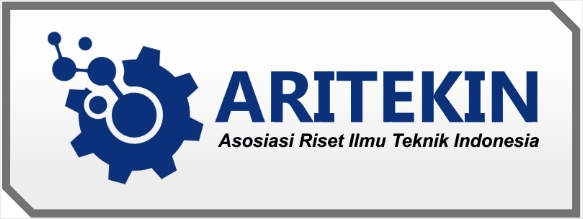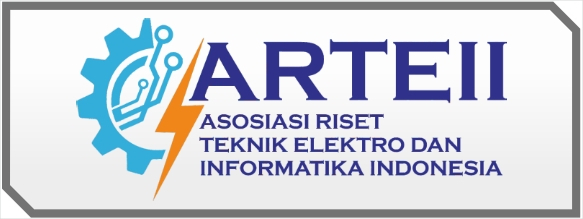Efektivitas Penggunaan Aplikasi Whatsapp Dalam Metode Pembelajaran Daring
DOI:
https://doi.org/10.55606/juitik.v3i3.648Keywords:
Effectiveness, Online Learning, Social Media, WhatsApp ApplicationAbstract
Lack of education in people's lives will of course hinder the progress and development of a country, and it will be difficult for the prosperity and well-being of its people to be realized. The aim of this research is to determine the effectiveness of online learning using the WhatsApp application for members of HIMAKOM 2019, BSD, South Tangerang City. Effectiveness means there is an influence that can produce results, efficiency and effectiveness. WhatsApp is one of the most commonly used communication applications on smartphones to interact, communicate and discuss and is even used for learning. Researchers use stimulus response theory in which the important learning is input in the form of stimulus and output in the form of response. Stimulus is whatever the teacher gives to students, while response is the student's reaction or response to the stimulus given by the teacher. The total population and sample are HIMAKOM members, totaling 58 BSD students, South Tangerang class of 2019. The results of hypothesis testing show that understanding the effectiveness of using the WhatsApp application has quite a significant effect on online learning, as evidenced by the t-count of 8.273 > 1.671 which is greater than t- table or significant value t < a = 0.05, then the effectiveness of using the WhatsApp application (X) influencing online learning (Y) is significant. This means that Ha is accepted and H0 is rejected, so it can be concluded that the effectiveness of using the WhatsApp application has a significant effect on online learning.
References
Pratama RE, Mulyati S. 2020b. Pembelajaran Daring dan Luring pada Masa Pandemi Covid-19. Gagasan Pendidikan Indonesia. 1(2):49.doi:10.30870/gpi.v1i2.9405.
Mulya Faidatul Hasanah. 2021. Efektivitas Penggunaan WhatsApp Group (WAG) pada Pembelajaran Jarak Jauh (PJJ) di Masa Pandemi Covid-19. Jurnal Inovasi Pendidikan Berbantuan Teknologi. 1(2).
Mustakim. 2020. Efektivitas Pembelajaran daring Menggunakan Media Online Selama Pandemi Covid-19 Pada Mata Pembelajaran Matematika. Volume ke-2. Online.
Septian Syarifudin. 2020. Implementasi Pembelajaran Daring untuk Meningkatkan Mutu Pendidikan sebagai Dampak Diterapkannya Social Distancing. Jurnal Pendidikan Bahasa dan Sastra Indonesia. 5(1).
Denny Erica, Harun Al Rasyid. 2018. Pengaruh Kualitas Layanan Dan Pemanfaatan Teknologi Informasi Terhadap Kepuasan Dan Loyalitas Pelanggan Jasa Transportasi Online Di Jakarta. Perspektif. XVI(2):168–176.
Qoriawati U. 2021b. Upaya Peningkatan Kualitas Pembelajaran Daring bagi Peserta Didik MI/SD pada Masa Pandemi Covid-19. JEMARI (Jurnal Edukasi Madrasah Ibtidaiyah). 3(1):10–17.doi:10.30599/jemari.v3i1.769.
Jayusman I, Agus O, Shavab K. 2020. Studi Deskriptif Kuantitatif tentang Aktivitas Belajar Mahasiswa dengan Menggunakan Media Pembelajaran EDMODO dalam Pembelajaran Sejarah. Volume ke-7.
Ardiansyah, Jailani M.Syahran, Risnita. 2023. Teknik Pengumpulan Data Dan Instrumen Penelitian Ilmiah Pendidikan Pada Pendekatan Kualitatif dan Kuantitatif. Jambi.
Maidiana Astuti Handayani, Cici Amalia, Tri Darma Rosmala Sari. 2022. Pengaruh Pengetahuan Keuangan, Sikap Keuangan dan Kepribadian Terhadap Perilaku Manajemen Keuangan (Studi Kasus Pada Pelaku UMKM Batik di Lampung). Jurnal Ilmiah Ekonomi dan Bisnis. 10(2):647–660.
Alawiyah S, Ghozali S, Suwarsito S. 2019. Pengaruh Lingkungan dan Motivasi Belajar Terhadap Prestasi Belajar. Jurnal Studi Guru dan Pembelajaran. 2(2):134–138.doi:10.30605/jsgp.2.2.2019.1369.
Atiningsih S, Aulia ), Ningtyas C, Bank S, Jateng B. 2019. Pengaruh Kompetensi Aparatur Pengelola Dana Desa, Partisipasi Masyarakat, dan Sistem Pengendalian Internal terhadap Akuntabilitas Pengelolaan Dana Desa (Studi pada Aparatur Pemerintah Desa Se-Kecamatan Banyudono Kabupaten Boyolali). Jurnal Ilmu Manajemen dan Akuntansi Terapan (JIMAT). 10(1).
Padilah TN, Adam RI. 2019. Analisis Regresi Linier Berganda dalam Estimasi Produktivitas Tanaman Padi di Kabupaten Karawang. Jurnal Pendidikan Matematika Dan Matematika. 5(2):117–128.
Downloads
Published
How to Cite
Issue
Section
License
Copyright (c) 2023 Jurnal Ilmiah Teknik Informatika dan Komunikasi

This work is licensed under a Creative Commons Attribution-NoDerivatives 4.0 International License.

















